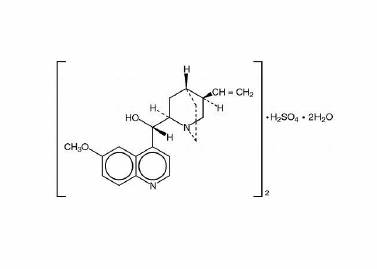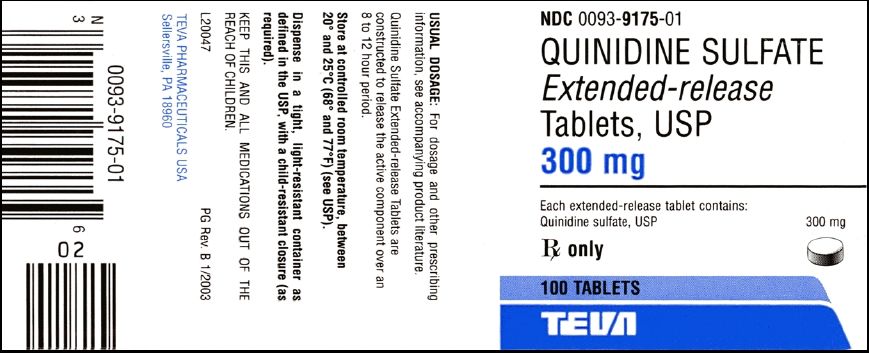Quinidine Sulfate Tablet, Film Coated, Extended Release while Breastfeeding

What is Quinidine Sulfate Tablet, Film Coated, Extended Release used for?
Is Quinidine Sulfate Tablet, Film Coated, Extended Release safe to use while breastfeeding? Can it interfere with growth and development of my kid?

Nursing Mothers Quinidine is present in human milk at levels slightly lower than those in maternal serum; a human infant ingesting such milk should (scaling directly by weight) be expected to develop serum quinidine levels at least an order of magnitude lower than those of the mother. On the other hand, the pharmacokinetics and pharmacodynamics of quinidine in human infants have not been adequately studied, and neonates’ reduced protein binding of quinidine may increase their risk of toxicity at low total serum levels. Administration of quinidine should (if possible) be avoided in lactating women who continue to nurse.
Quinidine Sulfate Tablet, Film Coated, Extended Release Breastfeeding Analsys
Quinidine sulfate while Breastfeeding
SafeCAS Number: 56-54-2
Follow-up breast milk production. (It may be inhibition of prolactin release)
Quinidine Sulfate Tablet, Film Coated, Extended Release Breastfeeding Analsys - 2
Quinidine sulfate while Breastfeeding
CAS Number: 56-54-2
Limited information indicates that maternal doses of quinidine up to 1.8 grams daily produce low levels in milk and would not be expected to cause any adverse effects in breastfed infants, especially if the infant is older than 2 months. Exclusively breastfed infants should be carefully monitored if this drug is used during lactation, possibly including measurement of serum levels to rule out toxicity if there is a concern.

What if I already have used Quinidine Sulfate Tablet, Film Coated, Extended Release?
Quinidine Sulfate Tablet, Film Coated, Extended Release is safe in breastfeeding and should not create any health problem for your baby but in case you feel any health issue associated with Quinidine Sulfate Tablet, Film Coated, Extended Release you should contact your doctor or health care provider. Be it pregnancy or lactation you shall keep your doctor informed.
My health care provider has asked me to use Quinidine Sulfate Tablet, Film Coated, Extended Release, what to do?
Definitely, Quinidine Sulfate Tablet, Film Coated, Extended Release is safe in lactation for baby. No wonder your doctor has recommended it.
If I am using Quinidine Sulfate Tablet, Film Coated, Extended Release, will my baby need extra monitoring?
No extra baby monitoring required while mother is using Quinidine Sulfate Tablet, Film Coated, Extended Release
Who can I talk to if I have questions about usage of Quinidine Sulfate Tablet, Film Coated, Extended Release in breastfeeding?
US
National Womens Health and Breastfeeding Helpline: 800-994-9662 (TDD 888-220-5446) 9 a.m. and 6 p.m. ET, Monday through Friday
UK
National Breastfeeding Helpline: 0300-100-0212 9.30am to 9.30pm, daily
Association of Breastfeeding Mothers: 0300-330-5453
La Leche League: 0345-120-2918
The Breastfeeding Network supporter line in Bengali and Sylheti: 0300-456-2421
National Childbirth Trust (NCT): 0300-330-0700
Australia
National Breastfeeding Helpline: 1800-686-268 24 hours a day, 7 days a week
Canada
Telehealth Ontario for breastfeeding: 1-866-797-0000 24 hours a day, 7 days a week
